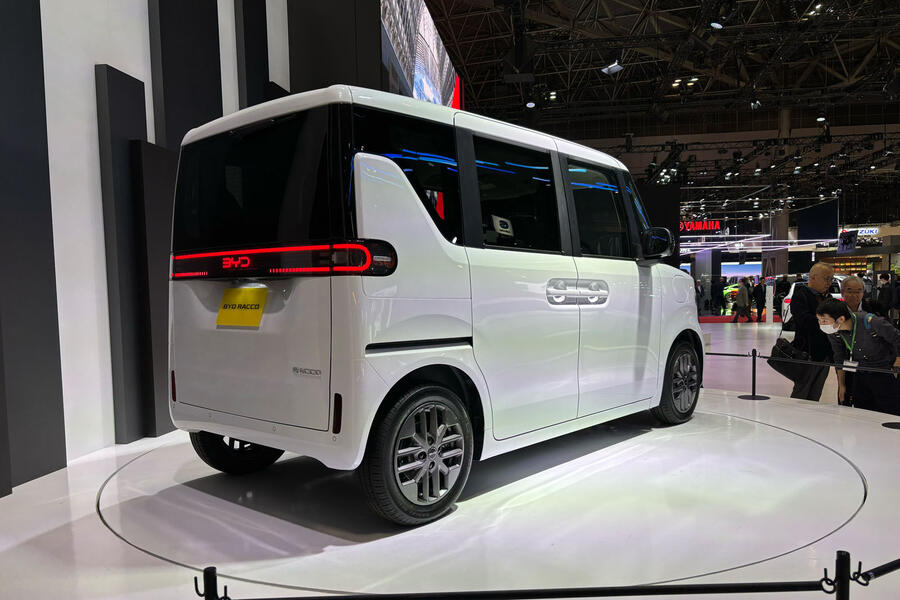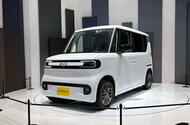Mooted class of small, affordable cars could justify the case for importing the tiny hatchback
BYD could bring its new Racco kei car to Europe if the EU's mooted 'E-Car' category for small cars increases the viability of such models.
BYD revealed the Racco at the Tokyo motor show last month, as a statement of intent from the Chinese brand to establish a foothold in a market served almost exclusively by domestic manufacturers including Honda, Suzuki, Toyota, Subaru and Mitsubishi.
Designed and engineered to meet official kei class regulations in Japan, where it is initially set to be sold exclusively, the Racco measures 3.4m long, 1.475m wide and 1.8m tall, and has similarly boxy, straight-edged proportions to its Japanese rivals.
It has a 20kWh battery said to be good for 112 miles of range and charging at up to 100kW, which powers a single motor of undisclosed capacity on the front axle.
The Racco is a landmark external entry into a segment that represents almost a third of car sales in Japan, which has historically favoured local marques - with BYD having sold fewer than 7000 cars there since launching in 2022 (compared to 11,000 in September alone in the UK).
There is much scrutiny over whether cracking the fiercely competitive kei car market could be key to BYD's future success in Japan - but now company vice president Stella Li has suggested to Autocar the Racco could ultimately play an important role globally as a new entry model.
"In Japan, we are already launching a kei car - we will be very interested to follow the EU regulation," she said. "If there's some space we can bring that car here."

The EU regulation Li referred to is the 'E-Car' category that European Commission president Ursula von der Leyen recently said she was working to establish in collaboration with car makers, as part of a drive to usher in a new generation of "small affordable cars".
The move comes in response to various manufacturers' assertions that the constant onslaught of new regulations and mandatory technologies have made small cars too expensive to produce, and thus priced a large proportion of the European public out of the new car market.
Precise details of the 'E-Car' class (the 'E' standing for 'European', 'environmental' and 'economical') remain to be outlined, but the framework is widely viewed as a crucial step in reintroducing small, cheap cars to the region - and has been compared to Japan's longstanding kei car class.
Dacia recently revealed the kei car-esque Hipster concept as a vision of the sort of car that could be produced if small car regulations were relaxed, suggesting it could ultimately go on sale for less than £15,000.
If BYD eventually deems Europe a hospitable environment for the Racco, it could slot in as a new entry-level EV underneath the Dolphin Surf hatchback, giving the Chinese firm a rival to the Dacia Spring and Leapmotor T03. Honda will also launch the Super-N, an adapted version of its N:One electric kei car in the UK next year, but has yet to confirm plans for a wider European launch.
However, Li added that a European launch for the Racco was "not a topic" of immediate focus for BYD, which is investing heavily in expanding its range of hybrids in all segments in the face of faltering demand for pure-EVs in Europe.


